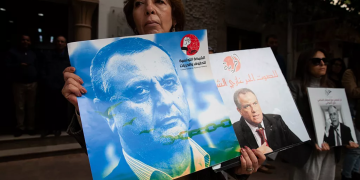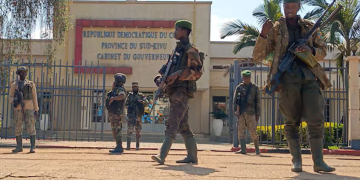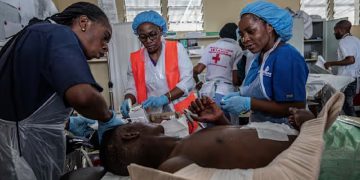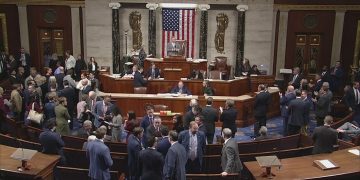Namibia has made history by electing its first female leader, Vice President Netumbo Nandi-Ndaitwah, who was declared the winner of the recent presidential election.
However, the election has been marred by significant controversy, including technical glitches that led to a three-day extension for voting and claims of illegality from opposition parties.
Election Results and Challenges
Nandi-Ndaitwah, aged 72, secured 57% of the vote, defying expectations that she might face a runoff.
Her ruling party, SWAPO, managed to retain its parliamentary majority, albeit by a narrow margin, extending its 34-year hold on power since Namibia gained independence from apartheid South Africa in 1990.
The election was held in a country known for its stability, yet the issues surrounding this vote have raised concerns.
The voting process was plagued by shortages of ballot papers and other logistical problems, prompting election officials to extend voting until November 30.
Opposition parties have criticized this extension as unconstitutional and have pledged to pursue legal action to have the election results invalidated.
Historical Significance of Nandi-Ndaitwah’s Victory
Despite the controversies, Nandi-Ndaitwah’s victory is historic. She becomes Namibia’s fifth president since independence and joins a select group of female leaders in Africa.
A member of Namibia’s underground independence movement in the 1970s, she previously served as vice president after President Hage Geingob’s death earlier this year.
In her acceptance speech, Nandi-Ndaitwah emphasized that Namibians had voted for peace, stability, and youth empowerment.
She stated:
“We are going to do what we promised you during the campaigns. Thank you for your confidence and trust in us.”
Opposition Response and Legal Challenges
The leading opposition candidate, Panduleni Itula from the Independent Patriots for Change (IPC), received 25% of the vote and has been vocal in his criticism of the electoral process.
He claims that thousands of voters may have been disenfranchised due to the chaotic voting conditions.
Itula stated:
“This election has violated the very tenets of our Electoral Act. Namibians deserve the right to choose their leaders freely and fairly, not through a rigged process.”
The IPC has announced plans to lodge an appeal against the election results, with other opposition parties indicating their support for this legal challenge.
Broader Context: Political Sentiment in Southern Africa
Namibia’s election occurs amid a regional trend where long-standing ruling parties are facing increasing discontent from voters.
In neighbouring countries like South Africa and Botswana, traditional parties that led their nations out of colonial rule have recently lost their political dominance due to rising frustrations over economic hardships and high unemployment rates among young people.
As Namibia navigates this pivotal moment in its political landscape, Nandi-Ndaitwah’s administration will need to address these pressing issues while also ensuring that the integrity of future elections is upheld.
A New Chapter for Namibia
As Namibia embarks on this new chapter under its first female president, the nation faces both challenges and opportunities.
The outcome of potential legal battles surrounding the election will be crucial in shaping the political environment moving forward.
With calls for transparency and accountability echoing across the country, all eyes will be on Nandi-Ndaitwah as she seeks to unite a nation eager for change while navigating the complexities of governance in a post-election landscape.
Source: africanews













